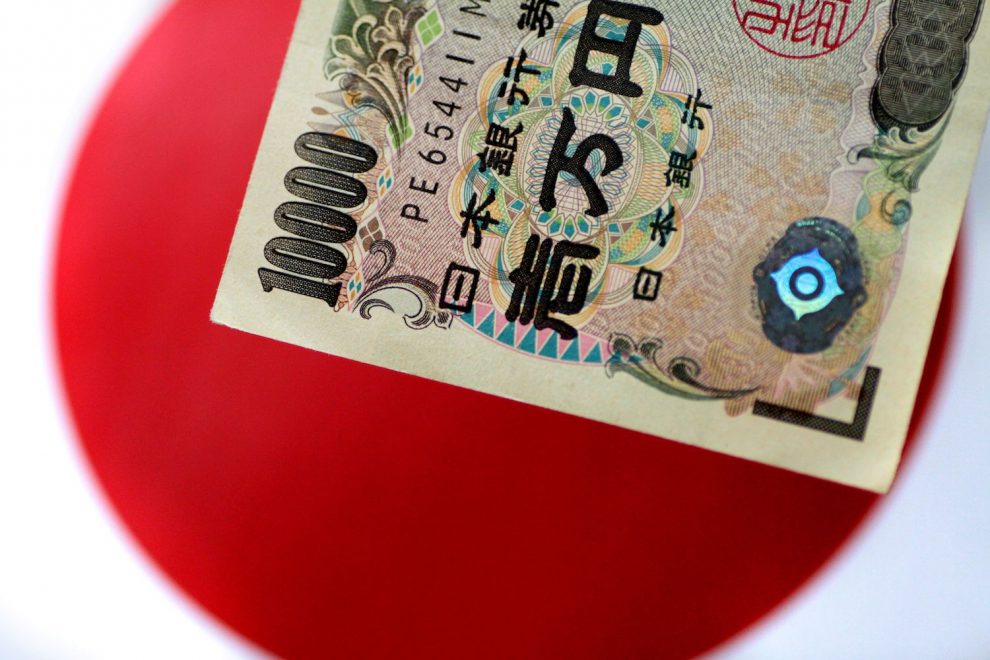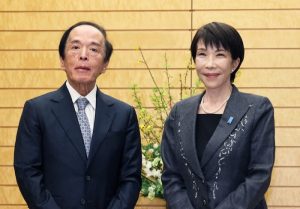Japan has again warned that it’s ready to take “decisive” action to support the depressed yen against speculator-driven currency moves.
Finance Minister Shunichi Suzuki signalled his government’s readiness to act on Tuesday after the yen hit a new 32-year low.
Suzuki also reiterated that the authorities could intervene without any announcements, but did not comment on whether they had actually done so, when pressed on speculation that Japan may be supporting the yen without publicly acknowledging it.
“We are closely watching market moves with a high sense of urgency. We will make an appropriate response decisively to excessive moves,” Suzuki told a session of parliament on Tuesday.
Also on AF: Australia Bids to Boost Pacific Defence Links, Counter China
The yen slipped to 149.10 to the dollar before the start of Asia trade on Tuesday, its weakest since August 1990, putting the major psychological barrier of 150 in focus.
Policymakers, who once zeroed in on yen strength as a source of concern for the trade-oriented economy, are now worried that the yen’s sharp fall is boosting already high commodity import costs, squeezing households, and upending business plans.
Authorities have fired verbal warnings against the yen’s descent almost daily since early September, when it reached 144 to the dollar as rate hikes by the Federal Reserve boosted the US currency.
Suzuki first acknowledged yen weakness as negative for the economy in April, when it was trading around 126 per dollar. It has continued to fall sharply and is down about 20% since the start of the year.
Japan spent 2.8 trillion yen ($18.81 trillion) in dollar-selling, yen-buying intervention last month when authorities acted in the markets to prop up the yen for the first time since 1998.
Excess BOJ Reserves
Estimates by the Bank of Japan released last Friday showed that excess reserves parked by institutions at the central bank would likely have declined 4.09 trillion yen as of Monday, October 17, due in part to actions that could be related to currency intervention.
The BOJ’s previous estimate, released on September 30, indicated a decline of 2.9 trillion yen as of the start of October.
The gap of more than 1 trillion yen could reflect funds absorbed from excess reserves as a result of yen-buying, dollar-selling intervention. This has fuelled speculation among market players that the government and the central bank may have intervened in the market without announcing it.
At Tuesday’s parliamentary session, Prime Minister Fumio Kishida joined in warning that rapid, speculation-driven currency moves were problematic.
‘Dollar’s Strength May Not Persist’
Kishida brushed aside the dominant market view that the Bank of Japan’s ultra-easy monetary policy was largely behind the yen’s sharp declines, saying that currency rates move on various factors, not just on US-Japan interest rate differentials.
“The Bank of Japan decides monetary policy based not just on currency moves but comprehensive factors, such as economic and price developments as well as the impact on small and midsize firms,” Kishida said.
Kuroda, who was also appearing in parliament after attending last week’s meetings of global financial leaders, suggested that the dollar’s strength may not persist.
“The dollar has become very strong against all currencies around the world,” Kuroda said. “But few of the people I met in Washington were thinking that it would last long.”
- Reuters with additional editing by Sean O’Meara
Read more:
Yen Dives to 32-Year Low as Relentless Dollar Powers On
Japan Warns on Yen Sell-Off as Dollar’s Surge Continues
Japan Banks on Tourism Boost From Weak Yen as Borders Reopen
























